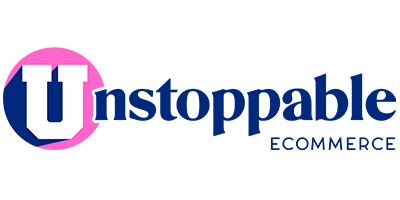8 steps to a successful online store
So you’re ready to start selling your products online? We are so excited for you and so happy you’re here. We have helped hundreds of eCommerce Entrepreneurs set up their online store and here are the essentials to getting started:
1. Validate your product and your pricing
You need to have a good product that people are willing to part with their money for. That’s just a non-negotiable. If you’re confident you have this then you need to validate your pricing before you do anything.
I often see people posting in groups and asking “how much would you pay for this”. This is the wrong question, to the wrong people.
If you feel like you must ask this question, and someone gives you a figure, ask them for some money. Because until they give you cold hard cash, their opinion is not something you can build your business on.
Get super clear on your gross profit margin and make sure you price your products that allows you to reinvest back into the business is an absolute non-negotiable when setting up an online store. Remember, it’s not about being the cheapest; it’s a very fast race to the bottom if you do this.
2. Develop your brand essentials
Your brand essentials include your business name, brand colours, logo, fonts and brand voice. Your brand is so much more than your logo, it’s how people feel.
Your brand is not what you say it is, it’s what your customers say it is.
By establishing clear brand essentials you have a true north to follow when setting up your site, developing your marketing and growing your business.
3. Secure the tech essentials
Make sure you own and control your domain name. Use a trusted provider and make sure you lock your domain.
Set up a professional email address for your store, something like hello@storename.com instead of storename@gmail.com is a lot more legitimate and has higher trust.
Secure all of the social handles (even the ones you aren’t using right now).
4. Setup your website
We use and recommend Shopify for our own stores and clients. Shopify is a self-hosted platform that allows full transparency and control of your site. Click here to read more about which platform to use.
Setup your basic SEO and make sure you have installed the Facebook pixel, google tracking pixels and google analytics.
Once you’ve launched your site, you can request a free mini website audit from us. Click here to request your free mini website audit.
5. Make sure you comply
You need to have a clear and easy to find returns policy, privacy policy and shipping policy.
Make sure you comply with the new GDPR (The General Data Protection Regulation 2016/679) regulation if you sell to citizens of the European Union and the European Economic Area.
And of course, ensuring you comply with any legal bodies relevant to your industry is essential.
6. Showcase your product in the best light
When you live and breathe your product it’s easy to forget that not everyone knows as much about it as you do. You need to use great images, and clear and compelling copy (wording). Your site needs to be laid out it a way that makes it easy for people to buy from you. Confusion is the enemy.
7. Get setup for email marketing
Email marketing works and when done well drives a high return on investment. Even if you aren’t employing an email strategy yet, make sure you are collecting emails of your potential customers as well as those who abandon cart and purchase from you.
Remember you own your email list. If something were to happen to Facebook or Instagram tomorrow, or whatever social platform you are using, what would happen to your business?
8. Slay your social media
When you publish engaging, magnetic and compelling content on social media you can drive organic traffic and sales to your site. We do recommend a paid advertising strategy, but when you’re just starting out, organic social media great place to start. Share a great mix of product, lifestyle and behind the scenes content via your social media. We recommend you start with one or two platforms, and nail those first, rather than spreading yourself too thin. We usually suggest Facebook and Instagram, but if your customers don’t play on these platforms then don’t waste your time there. Fish where the fish are.
Follow these steps to make sure you set up your online store the right way, the first time. Reach out if you have any questions… we’re here for you.





